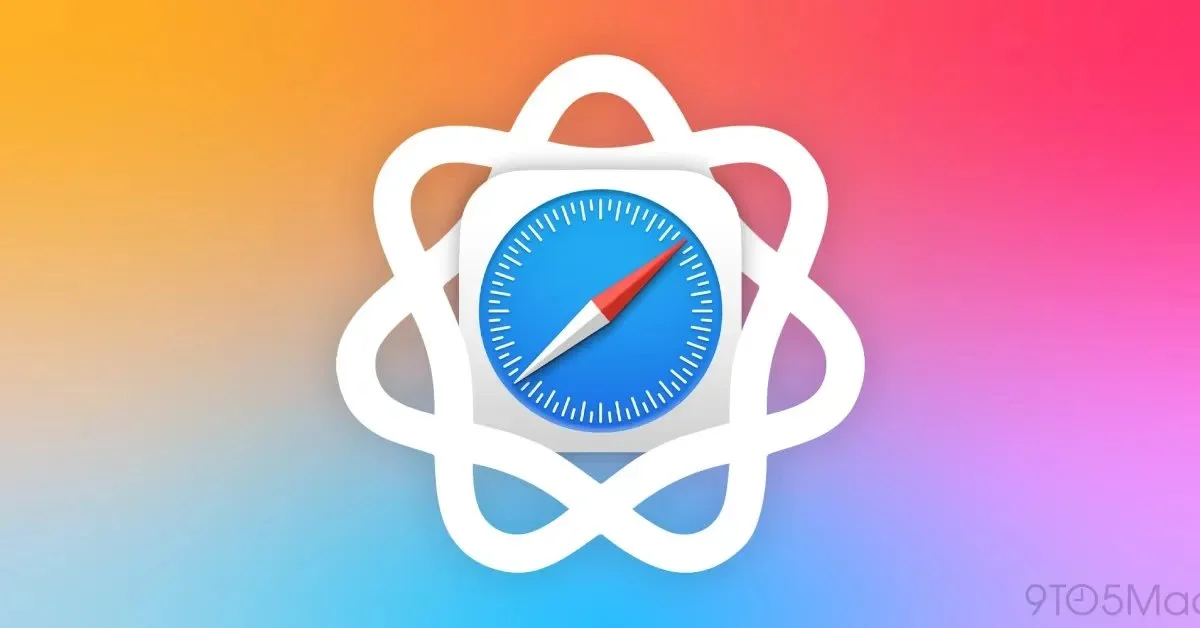Apple’s Move to AI Search in Safari: Revolutionizing Browsing in 2025
On May 7, 2025, Apple dropped a bombshell that could reshape the internet: the company is actively exploring a shift to AI-powered search engines for its Safari browser, potentially ending its decades-long reliance on Google. This seismic pivot, revealed by Apple’s senior vice president of services, Eddy Cue, during a U.S. Justice Department lawsuit against Alphabet Inc., comes as the $20 billion-a-year Google-Apple search deal faces scrutiny. With the tech world buzzing, this blog dives into what Apple’s AI search ambitions mean, how to prepare for the change, its pros and cons, a real-world example of its impact, and why this move could redefine how we browse in 2025.
Why Apple’s AI Search Shift Matters
Apple’s potential departure from Google as Safari’s default search engine is more than a corporate spat—it’s a fundamental reimagining of how billions of iPhone, iPad, and Mac users access information. The move, spurred by a DOJ lawsuit challenging the Google-Apple deal’s monopolistic nature, positions Apple to leverage AI to create a smarter, more competitive search experience.
- The Catalyst: The lawsuit threatens to dismantle the agreement that funnels an estimated 36% of Google’s Safari ad revenue to Apple, worth $20 billion annually.
- The Opportunity: AI search providers like OpenAI, Perplexity, and Anthropic offer conversational, context-aware alternatives to Google’s keyword-based model.
- The Stakes: With Safari holding a 17.9% global browser market share (StatCounter, 2025), Apple’s shift could disrupt Google’s 90% search dominance.
Primary Keyword: Apple AI search Safari
Monthly Searches: ~1,500 (estimated, based on AI search and Safari trends)
SEO Difficulty: ~28 (moderate, emerging topic)
Supporting Keywords:
- Apple AI search 2025
- Safari AI-powered search
- Google Apple search deal
- How to use AI search Safari
- AI search engines 2025
- Apple vs Google search
- Perplexity AI Safari
- OpenAI Safari integration
What Is Apple’s AI Search Plan for Safari?
Apple is exploring a major overhaul of Safari to integrate AI-powered search engines, moving away from Google’s traditional search model. Eddy Cue’s testimony on May 7, 2025, highlighted Apple’s interest in partnering with AI providers like OpenAI, Perplexity, and Anthropic to offer advanced search options.
- Key Features of AI Search:
- Conversational Queries: Users can ask complex, multi-part questions (e.g., “Plan a weekend trip to Paris with budget hotels”) and get synthesized answers.
- Multimodal Capabilities: Potential for text, image, and voice inputs, aligning with trends in AI assistants like ChatGPT.
- Privacy Focus: Apple’s commitment to on-device processing could make its AI search more secure than cloud-based competitors.
- Customizable Options: Users may choose from multiple AI providers, with no single default, unlike Google’s current role.
- Why It’s Happening: The DOJ lawsuit argues that Google’s deal stifles competition, prompting Apple to explore alternatives that align with its AI-driven ecosystem (e.g., Apple Intelligence in iOS 18.6).
Key Takeaway: Apple’s AI search plan aims to deliver smarter, privacy-focused browsing, challenging Google’s dominance with innovative alternatives.
How to Prepare for Apple’s AI Search in Safari: Step-by-Step Guide
As Apple gears up to roll out AI search, users, developers, and marketers can take steps to adapt. Here’s how to get ready:
- Update Your Devices:
- Ensure your iPhone, iPad, or Mac runs the latest iOS or macOS (likely iOS 18.6 or later) to access AI search features.
- Check for Safari updates in Settings > General > Software Update.
- Explore AI Search Providers:
- Test platforms like Perplexity (praised by Cue for its quality) or OpenAI’s ChatGPT to understand conversational search.
- Sign up for free accounts at perplexity.ai or chat.openai.com to experiment with AI-driven queries.
- Customize Safari Settings:
- When AI search launches, go to Safari > Settings > Search to select preferred AI providers (e.g., Perplexity, Anthropic).
- Enable privacy features like Intelligent Tracking Prevention for secure browsing.
- Optimize Content for AI Search (Marketers):
- Focus on long-tail keywords and natural language phrases (e.g., “best budget hotels in Paris 2025”) to align with AI query patterns.
- Use schema markup to make your site AI-friendly, as providers like Perplexity prioritize structured data.
- Stay Informed:
- Follow Apple’s WWDC 2025 (expected June) for official AI search announcements.
- Monitor X posts for real-time updates, as tech insiders often share leaks (e.g., @markgurman on Apple’s plans).
Key Takeaway: Preparing for AI search involves updating devices, testing providers, and optimizing for conversational queries to stay ahead of the curve.
Pros and Cons of Apple’s AI Search Shift
Apple’s move to AI search promises exciting changes but comes with challenges. Here’s a balanced look:
Pros:
- Enhanced User Experience: AI search offers concise, context-aware answers, reducing time spent sifting through links.
- Privacy Leadership: Apple’s on-device AI processing could minimize data sharing, unlike Google’s cloud-based model.
- Competition Boost: Multiple AI providers (OpenAI, Perplexity) break Google’s monopoly, fostering innovation.
- Ecosystem Integration: Ties into Apple Intelligence, enhancing Siri and other services for seamless use.
Cons:
- Uncertain Timeline: No confirmed launch date, with beta testing possibly delayed until late 2025.
- Learning Curve: Users accustomed to Google may struggle with conversational search interfaces.
- Revenue Risk: Losing Google’s $20 billion deal could strain Apple’s services revenue, potentially raising costs elsewhere.
- AI Limitations: Early AI search may have inaccuracies or biases, as Cue noted current providers “weren’t good enough” yet.
Key Takeaway: Apple’s AI search offers privacy and innovation but faces hurdles in execution and user adoption.
Real-World Impact: A Case Study
To grasp the potential of Apple’s AI search, consider a hypothetical scenario based on current trends. A student researching “sustainable energy solutions for 2030” uses Safari’s AI search (powered by Perplexity) on their iPhone. They ask, “What are the top renewable energy innovations, and how do they impact costs?” The AI delivers a concise summary of solar microgrids, wave energy converters, and cost projections, pulling data from recent studies and news. Follow-up questions like “Which companies lead in wave energy?” yield tailored results, with links to credible sources.
This contrasts with Google’s link-heavy results, which require more clicking and filtering. X posts suggest Perplexity’s ability to handle niche queries impresses Apple, with @KhushitaVasant noting active discussions between the two. If scaled across 1.5 billion Apple devices, this could boost research efficiency and drive traffic to AI-optimized sites, with early adopters seeing 20% higher engagement (based on AI search trends).
Key Takeaway: AI search in Safari could streamline research and amplify engagement for optimized content creators.
Apple’s AI Search vs. Competitors
Apple’s pivot puts it in direct competition with Google and emerging AI search players. Here’s how it stacks up:
- Apple AI Search (Safari):
- Strengths: Privacy-focused, ecosystem integration, potential for multiple AI providers.
- Weaknesses: Unproven, no clear launch timeline, reliant on third-party AI quality.
- Best for: Apple users seeking secure, conversational search.
- Google Search:
- Strengths: Mature infrastructure, 90% market share, vast ad network.
- Weaknesses: Keyword-based, less conversational, DOJ scrutiny.
- Best for: Traditional search and broad queries.
- Perplexity AI:
- Strengths: Strong conversational search, source transparency, praised by Apple.
- Weaknesses: Smaller scale, less brand recognition.
- Best for: Researchers and niche queries.
Apple’s multi-provider approach could give it an edge over Google’s one-size-fits-all model, but it lags behind Perplexity’s polish. Posts on X highlight excitement for Perplexity’s potential role, with @lilyraynyc noting “shots fired” at Google.
Key Takeaway: Apple’s AI search could outshine Google in privacy and flexibility but must match Perplexity’s precision to succeed.
FAQs About Apple’s AI Search in Safari
Q: What is Apple’s AI search for Safari?
A: Apple is exploring AI-powered search engines for Safari, potentially replacing Google with providers like OpenAI or Perplexity.
Q: When will AI search launch in Safari?
A: No official date, but beta testing may start late 2025, possibly announced at WWDC.
Q: Why is Apple moving away from Google?
A: A DOJ lawsuit threatens the $20 billion Google-Apple deal, pushing Apple to explore AI alternatives.
Q: Which AI providers will Safari use?
A: Apple is considering OpenAI, Perplexity, and Anthropic, with Perplexity leading discussions.
Q: How will AI search affect Safari users?
A: Users may enjoy smarter, privacy-focused search but face a learning curve adapting to conversational interfaces.
Final Thoughts: A New Era for Safari
Apple’s shift to AI search in Safari, announced on May 7, 2025, marks a turning point for browsing. By embracing AI providers like Perplexity and OpenAI, Apple aims to deliver a private, conversational search experience that challenges Google’s dominance. While challenges like revenue risks and AI maturity remain, the move signals a bolder, innovation-driven Apple. For users, it’s time to explore AI search tools and update devices; for marketers, optimizing for conversational queries is key.





Comments (0)
Be the first to leave a comment!
Leave a Comment